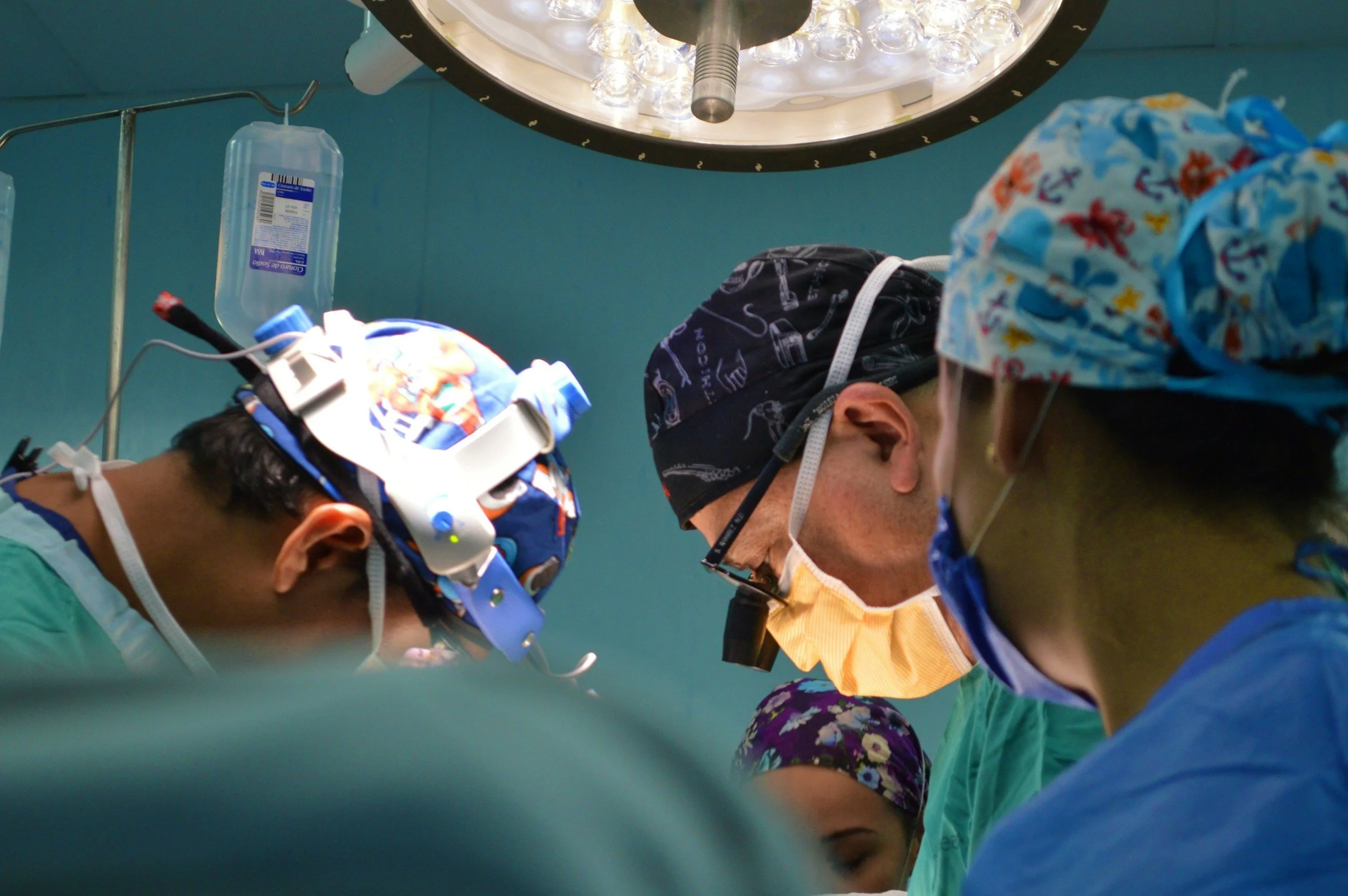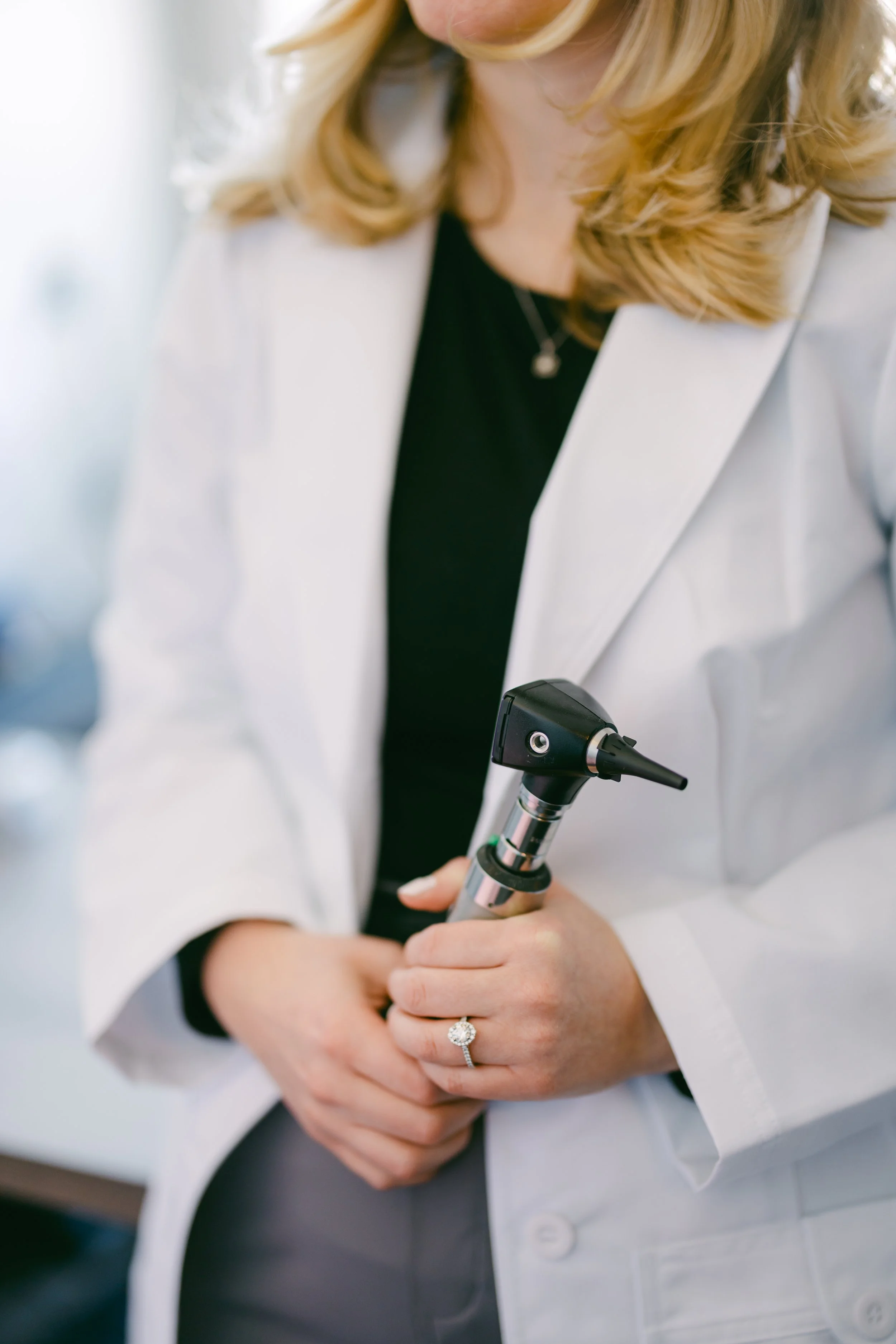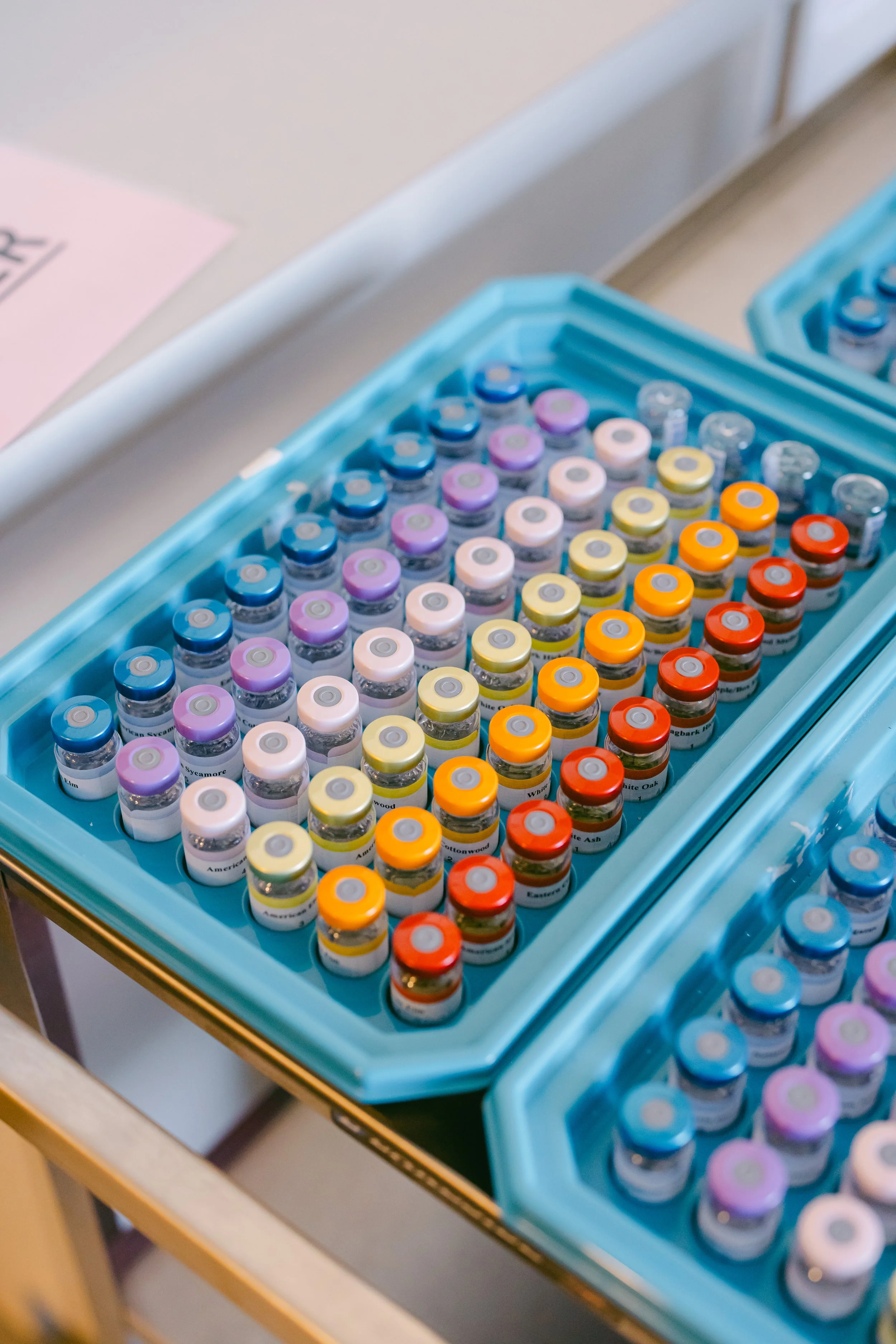
Nose/Sinus
From stubborn congestion to chronic allergies, we treat the root cause, so you can breathe easier every day.
Balloon Sinuplasty
Chronic Nasal Congestion Isn’t Just Annoying—It’s Exhausting
If you’re constantly battling sinus pressure or nasal blockage, you know how much it affects your sleep, focus, and quality of life. You’ve tried sprays, medications, and endless rounds of antibiotics—but nothing lasts.
Balloon Sinuplasty is a minimally invasive procedure that gently opens blocked sinus passages without cutting or extended downtime.
Correcting Septal Deviations and Turbinate Reductions along with Balloon Sinuplasty are often necessary to improve breathing.
Breathe easier. Sleep better. Feel like yourself again.
Schedule your consultation today and take the first step toward lasting sinus relief.
Septoplasty
When is Surgery Needed?
If a deviated septum is causing serious breathing problems or chronic infections, we may recommend septoplasty.
About Septoplasty
What it is: A surgical procedure done entirely inside the nose—no external scars
Who it’s for: Typically adults, since the septum continues to grow until age 18
What to expect: Performed under local or general anesthesia, usually outpatient
Recovery: nasal splints may be placed to keep the septum straight. If your nasal congestion is due to a deviated septum, surgery may offer lasting relief.
In some cases, septoplasty is done alongside other procedures, such as sinus surgery or rhinoplasty (cosmetic nose reshaping).
If your chronic sinus issues are due to a deviated septum, surgery may offer lasting relief. We’ll work with you to determine the best path forward—so you can breathe easier, sleep better, and feel more like yourself.
“I can’t express how wonderful everyone is there. I had deviated septum surgery done September of 2022. I was full of anxiety about the surgery, everyone there made it so much easier. Going from having a 85% blocked breathing, to truly being able to take a deep breath, is amazing. Dr Girgis and his team really changed my life, I can’t thank him enough, a truly great team.”
Sinus Surgery
When Is Sinus Surgery the Right Option?
Surgery is typically considered only when medications haven’t worked or when there’s a physical blockage in the sinuses that can’t be treated with meds alone.
Before recommending surgery, we perform a thorough evaluation to understand the root cause of your sinus issues — often found in the area where the sinuses connect to the nose. This may include a CT scan (without contrast), smell testing, and blood work.
Our goal is to choose the least invasive and most effective treatment plan tailored to your needs — so you can breathe and feel better long term.
“Everything moved so smoothly. It was a pleasure being with such caring professionals.”
Rhinoplasty
Rhinoplasty: Restore and Refine
Whether you’re struggling to breathe through your nose or feeling self-conscious about its appearance, rhinoplasty may be the solution. As part of the broad field of otolaryngology, facial plastic surgery addresses both reconstructive and cosmetic concerns of the face, nose, ears, and neck.
Functional rhinoplasty is often performed to correct breathing problems caused by a deviated septum, injury, or structural abnormalities—some present at birth, others due to trauma, prior surgery, or disease.
Cosmetic rhinoplasty focuses on enhancing the visual appearance of the nose, improving facial balance and boosting confidence. Many patients choose rhinoplasty to refine the size, shape, or symmetry of their nose in a way that still feels natural and uniquely theirs.
Our ENT surgeons are highly trained in both the functional and aesthetic aspects of nasal surgery—so you don’t have to choose between breathing better and feeling confident in your appearance.
Ready to breathe freely and look your best?
Schedule your rhinoplasty consultation today.
“I needed surgery for quite a long time and kept putting it off. Dr. Girgis was very patient with me. I’m glad I finally decided to do it because I’m feeling so much better. The doctor makes you feel very comfortable and everyone else in the office is very pleasant.”
Allergy Testing
Allergies & Hay Fever
If you're dealing with sneezing, congestion, itchy eyes, or chronic sinus pressure, allergies could be the cause. Our ENT team is here to help diagnose and treat allergy-related issues that affect your ears, nose, sinuses, and throat.
We also look at non-allergy factors that can worsen symptoms—like nasal blockages, a deviated septum, enlarged turbinates, or chronic sinus infections.
Our approach includes:
Allergy testing (including skin prick and intradermal skin testing)
Allergy treatments like immunotherapy (both allergy shots and sublingual drops).
Allergy Testing Information
If your doctor has recommended allergy testing, please call our office at 630-323-5214 or stop by the front desk to schedule your appointment.
Scheduling Hours
Monday – Thursday | 9:00 AM – 5:00 PM
Allergy Treatment Options
1.
Lifestyle Modifications & Allergen Avoidance
The first step in treating allergies is reducing exposure to allergens. The allergy nurse will provide personalized recommendations to minimize triggers in your home and environment.
2.
Medications
Medications can offer relief for many allergy symptoms. These include:
Antihistamines – Block histamine to reduce sneezing, itching, and runny nose
Steroid sprays – Shrink swollen nasal tissues to relieve congestion
Saline Sprays & Rinses – Soothe nasal passages and remove irritants
Always follow dosing instructions, and consult with the allergy nurse about what works best for you.
3.
Immunotherapy (Allergy Shots or Drops)
When medication and lifestyle changes don’t help, immunotherapy treatment could be the answer. Immunothrapy helps build long-term tolerance to allergens over 3–5 years. It’s ideal for patients with persistent symptoms or who want to reduce medication use.
Allergy Shots
Subcutaneous Immunotherapy
Administered in the office once a week for ~18 months, then gradually reduced to every 4 weeks
Requires a 20-minute observation period after each injection
Covered by most insurance plans
Allergy Drops
Sublingual Immunotherapy (SLIT)
Taken daily at home under the tongue
Not covered by insurance
Less invasive options with no needles
Suitable for those who prefer at-home treatment
Consistency is crucial for both shots and drops to be effective.









